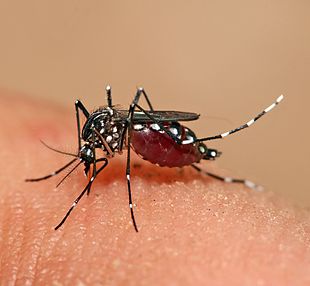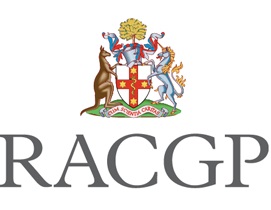| Dengue Fever
Fact sheets Last updated: 01 May 2016  Dengue virus is spread by two types of mosquitoes that prefer to live indoors. Travellers are at risk if they visit an area that has the dengue mosquito. Dengue virus is spread by two types of mosquitoes that prefer to live indoors. Travellers are at risk if they visit an area that has the dengue mosquito.
What is dengue? Dengue is a viral infection that is caused by one of four dengue viruses (DENV-1, DENV-2, DENV-3 and DENV-4). It is spread by two types of Aedes mosquito. What are the symptoms? A person infected by the dengue virus develops severe flu-like symptoms. The disease, also called 'break-bone' fever affects infants, children and adults alike and can rarely be fatal. The symptoms of dengue fever vary according to the age of the patient. People with dengue fever begin to develop illness between 3 and 14 days (usually 4-7 days) after being bitten by an infectious mosquito. Symptoms include sudden fever, chills, severe headache with pain behind the eyes, swollen glands, muscle and joint pain and extreme fatigue. There may also be abdominal pain, nausea and vomiting. A faint red rash sometimes develops on the upper body around the third day. The fever typically lasts around 6 days. Severe dengue is a rare but potentially deadly complication due to plasma leaking, fluid accumulation, respiratory distress, severe bleeding, or organ impairment. The warning signs to look out for occur 3-7 days after the first symptoms in conjunction with a decrease in the fever (temperature below 38°C) include: Severe abdominal pain Persistent vomiting Rapid breathing Bleeding gums Blood in vomit Fatigue, restlessness The next 24-48 hours of the critical stage can be lethal; proper medical care is needed to avoid complications and risk of death. How is it spread? The dengue virus can be spread by two species of mosquito: the Dengue mosquito (Aedes aegypti) and the Asian Tiger mosquito (Aedes albopictus). These mosquitoes become infected when they feed on somebody who has dengue viruses in the blood during their infection. Once infected, the virus multiplies inside the mosquito and can infect other people when the mosquito feeds again. Between 3 and 14 days after a person is bitten by a mosquito carrying dengue virus, the virus may be present in their blood. If this person is bitten by another mosquito while the virus is in their blood, the new mosquito can become infected with the virus and pass it on to other people that they bite. Dengue is essentially a village and urban disease because its principal vector, Aedes aegypti, is abundant and highly adapted to the environment in and around homes. The species is a highly effective vector: it feeds almost exclusively on humans, breeds in small man-made articles that contain water, rests inside buildings and is rarely found more than 50 meters from human habitation. The dengue mosquito continues to bite throughout the day. Dengue is occasionally transmitted through blood transfusions, tissue or organ transplants, by needlestick injuries and by mucous membrane contact with blood that is infected with dengue virus. Who is at risk? People who travel to dengue affected areas are at risk. Risk areas are those with Aedes aegypti and Aedes albopictus mosquitoes. Currently Aedes aegypti is found in coastal regions of Queensland north of Gladstone while Aedes albopictus is found in the Torres Strait. These mosquitoes live in many tropical countries throughout Asia, the Pacific, parts of sub-Saharan Africa and the Middle East which are considered dengue-affected areas. In the past, dengue has been found in the Northern Territory, New South Wales and north Queensland but it is currently limited to north Queensland. Outbreaks have occasionally occurred in and around Cairns and Townsville in recent times. People with dengue fever usually develop long-lasting immunity to that particular type of dengue virus but are still susceptible to infection with other types of dengue virus. How is it prevented? There is currently no vaccine against dengue licensed in Australia. To protect against mosquitoes and reduce the risk of diseases they transmit: Cover-up with a loose-fitting long sleeved shirt and long pants when outside Apply mosquito repellent to exposed skin Take special care during peak mosquito biting hours. The mosquitoes that transmit diseases such as dengue, chikungunya and Zika will bite all through the day Remove potential mosquito breeding sites from around the home and screen windows and doors Take extra precautions when travelling overseas in areas with a higher risk of mosquito-borne diseases, and when visiting Cairns or other towns in Northern Queensland. In addition to the general protection measures above, travellers should also: Stay and sleep in screened or air-conditioned rooms Use a bed net if the area where you are sleeping is exposed to the outdoors. Nets are most effective when they are treated with a pyrethroid insecticide, such as permethrin. Pre-treated bed nets can be purchased before travelling, or nets can be treated after purchase Avoid known areas of high mosquito-borne disease transmission or outbreaks. How is it diagnosed? Blood tests can show whether there are antibodies to dengue virus. Blood samples are taken while the person is unwell and then again two weeks later to see if there has been a change in the antibody levels. This can indicate that there has been a recent dengue infection. How is it treated? There is no specific treatment for dengue fever. Patients should seek medical advice, rest and drink plenty of fluids. Paracetamol can be taken to bring down fever and reduce joint pains. However, aspirin or ibuprofen should not be taken since they can increase the risk of bleeding. For severe dengue, emergency medical care is required. Maintenance of the patient's circulating fluid volume is the central feature of such care, with close monitoring and treatment in hospital. What is the public health response? When laboratories confirm dengue fever, they notify their local public health unit. Public health units follow up each case to determine where the person acquired the infection. This information is important to assist identifying if transmission is occurring in areas considered to be low-risk and to prevent transmission. For further information please call your local Public Health Unit on 1300 066 055 |
|
Covid-19 Notices
Flu Shot Emergency Numbers After Hours 13 74 25 Contact Hours |
Doctors
Appointments Fees About Map Links |
Immunisation
Feedback Local Pharmacies Resources Home |

| 
|

| 
| 
| 
| 
|
|---|---|---|---|---|

| 
| 
| 
| 
|



